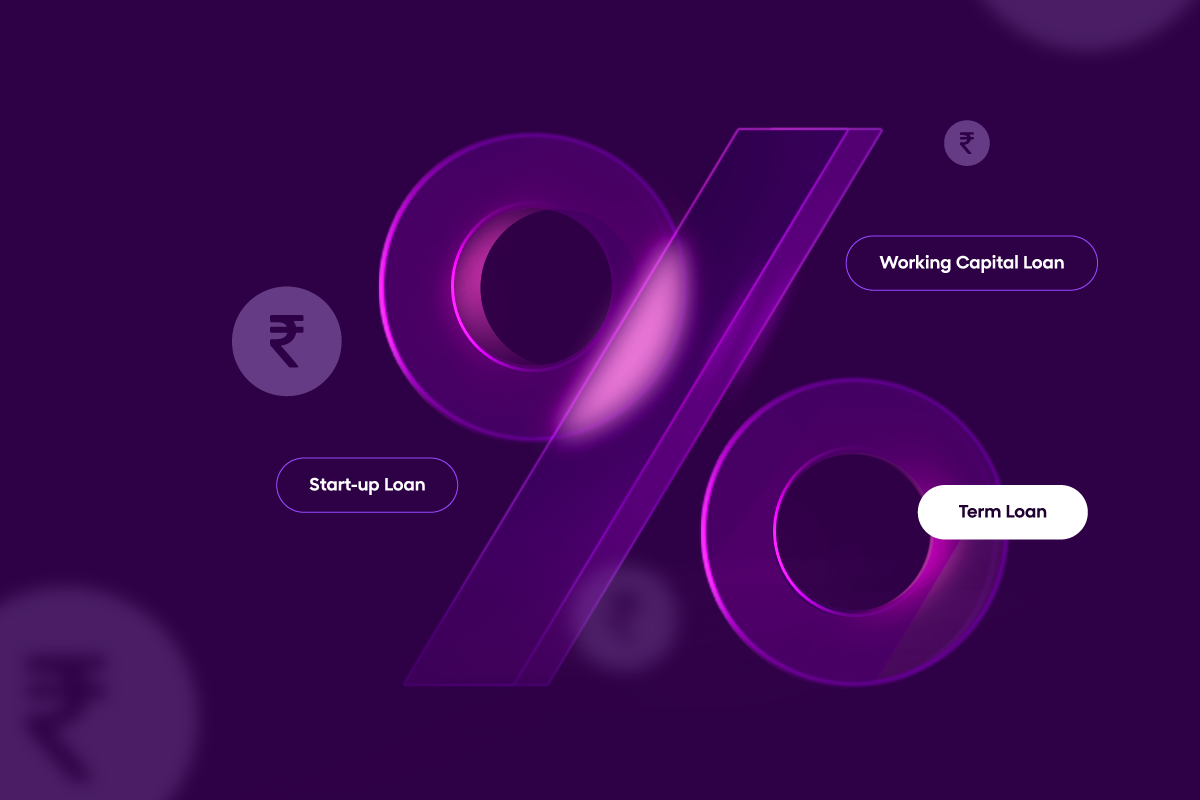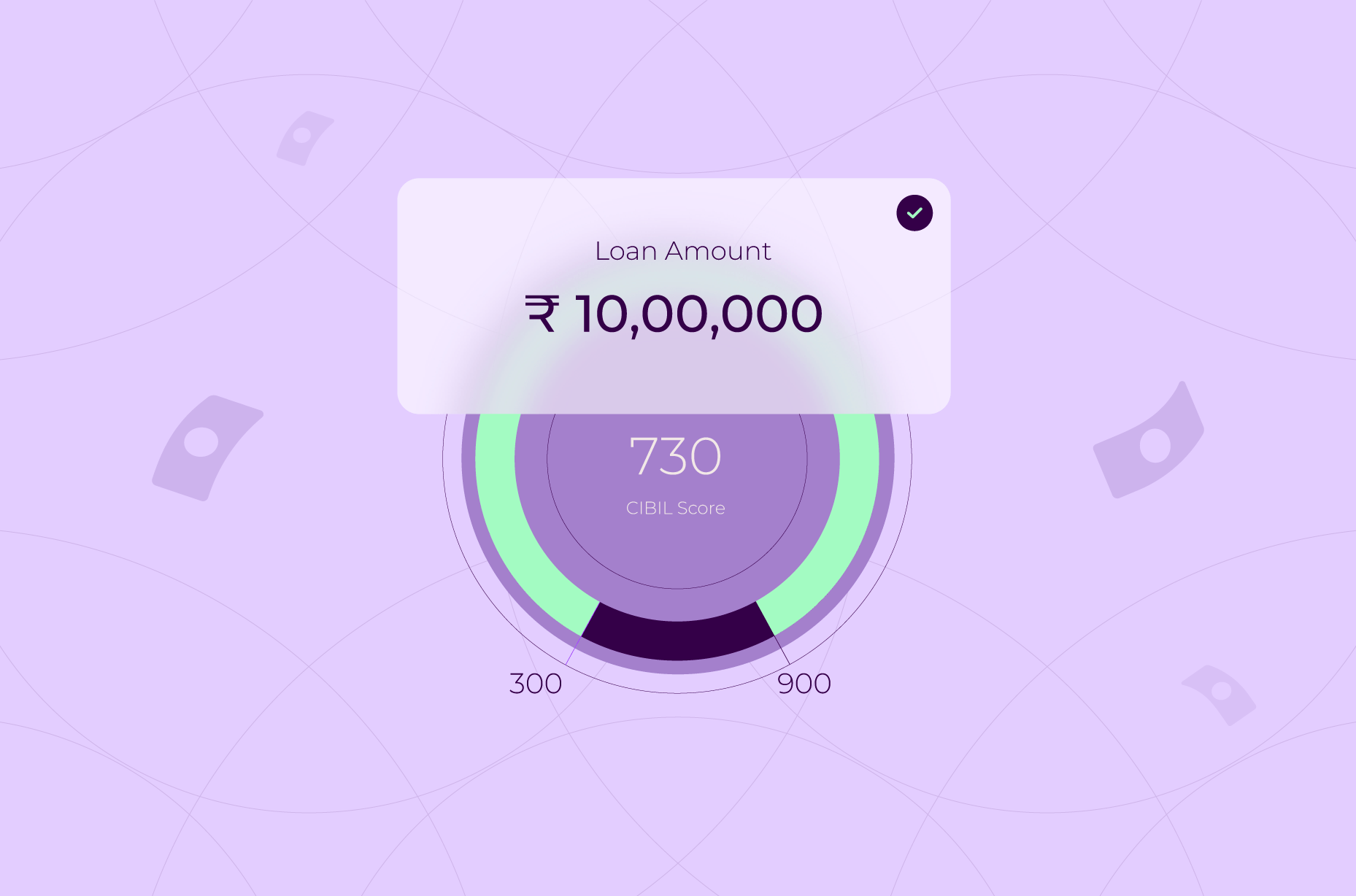33% of small business owners struggle or fail due to a lack of capital – ZIPPIA
Oftentimes, due to a lack of long-term planning and a tendency to underestimate their potential for growth, businesses don’t realise that they need extra funds or loans. Additionally, there is a traditional stigma associated with taking business loans because loans are viewed as a sign of a flailing business that cannot meet its needs within its own revenue. By the time businesses actually get convinced about the need for a loan, they are in such dire need of funds that it becomes impossible to manage core business activities without them. All businesses including D2C businesses require funds to fulfill needs such as purchasing assets that might include land, a shop, new machinery, or leasing a factory. Important business requirements also include working capital for growth perspectives. Here, business loans come in to ease business owners’ worries. These loans include business loans for new businesses, advance loans, etc. Business owners can apply for loans depending on their needs and preferences.
The more desirable scenario, i.e. a business getting a loan to fuel future growth, is also addressed with business loans.
At 85%, the approval rate for merchant cash advances is the highest of all types of small business funding – Fundera
There are 7 types of business loans broadly
1) Working Capital Loan
Working capital loans are used to meet daily business requirements such as inventory needs, payroll, rent, utilities, etc, and is one of the most popular types of business loans for new businesses. Also, they help with several business expansion services. For example, if a business requires to buy new equipment for expansion, a working capital loan can be of great help. The main purpose it serves is to cater to the short-term needs of the business. Normally, businesses can get working capital loans up to Rs.40 lakh in which the payment tenure remains 12 months but may also increase if the business demands so. In the realm of D2C business requirements where business demands can suddenly increase, working capital loans can be of great help.
Funding numbers are expected to grow from $2.3 billion invested in ‘seed to series A’ startups in 2021 to $ 2.3 billion in 2023 – IvyCAP ventures
2) Letter of Credit
This loan proves to be very useful for enterprises that trade internationally. A letter of credit loan can be thought of as a credit limit. In this, a bank lender offers a funding guarantee to enterprises that deal with international business transactions. It can be used for import as well as export purposes. Enterprises doing business overseas fear faulty payments (sometimes no payments at all) as they trade with unknown suppliers. A letter of credit provides them with an assurance of payment before enterprises perform any transaction. The key benefit of this loan is that it provides a seal of assurance and confidence to suppliers. Eventually, it helps business owners and entrepreneurs to carry out their businesses without worrying about payment defaults.
3) Start-up Loan
There are more than 39,000 startups in India at present that have access to many private equities and debt funding options – Bank Bazaar
A startup loan is essentially for budding business ventures. So naturally, it is a boon for D2C brands that have just started their business journey. Applicants for this loan do not usually hold any concrete credit history on their business or company. A lender gauges the borrower’s eligibility for this loan through his/her personal credit history along with the business credit history (if available). Important business financial figures like the current turnover of the business are taken into account to decide on the loan amount, interest rate, and repayment tenure. The best part about startup loans is that borrowers do not have to carry the burden of good credit history of the business to get the loan approved. Even an entrepreneur with an idea or a business owner at an early stage can apply. The government of India has also rolled out startup business loan schemes for MSMEs and startups such as Bank Credit Facilitation Scheme, Pradhan Mantri Mudra Yojana (PMMY), Credit Guarantee Scheme (CGS), Startup India, and more. Additionally, entrepreneurs looking for business loans for new businesses prioritise start-up loans mostly because this loan type offers affordable interest rates for repayment.
4) Term Loan
A term loan is one of the most common business finance options and has three categories:
- Short term loan
- Intermediate term loan
- Long term loan
The repayment tenure of a term loan ranges from 12 months to 5 years. Under this loan, the collateral-free loan offered is up to 2 crores and the loan credit also depends on the business credit history. This value can exceed if the business requirements are more. The repayment tenure for a term loan is decided by the lender during the time of loan application. It is repaid in regular payments over a set time period. One of the major benefits of this loan is that it provides funding faster than traditional methods like bank loans offered to small businesses. Moreover, a business can get a higher amount for a loan with ease.
Are you a D2C brand or any other SME looking for a hassle-free term loan? If yes, click here!
5) Overdraft Facility
This is a kind of loan that businesses having a good repayment history can easily get. But this is not the only parameter considered for an overdraft loan facility. The lender takes into account the borrower’s credit history, relationship with the institution, business cash flow, and more factors before approving a certain fixed overdraft limit. The attractive part about this loan is that a borrower has the option to pay interest only on the utilized amount of the loan. But, this can only remain till a borrower repays the principal amount and the interest timely. Additionally, a borrower must have an existing account with a bank from which he/she wants a loan. Even if there is no balance in the account of the borrower, the bank can still provide an overdraft loan.
6) Bill/Invoice Discounting
Also known as invoice financing and invoice factoring, this loan provides an amount to the seller in advance. This advance amount is the amount received by the seller at discounted rates from the lender. When a product is out in the market, the selling price is set at such a rate that it compensates for the loan’s interest. In this way, a buyer contributes to the interest rate to increase the revenue of the financial institution that provided the loan. This is done in the form of monthly fees and of course the interest that the buyer pays. Such a loan is very beneficial to businesses that encounter a time lag between raising invoices and receiving payment from clients. Also, a lender can only finance up to 80% of the amount of the invoice. Once the invoice is cleared, the business can clear the debt as per the decided interest rate and the repayment tenure. An added advantage of this loan is that there is no legal obligation for a business owner to inform clients that they have entered into an invoice discounting arrangement.
D2C businesses do encounter a time lag in payments in the initial stage of the business. For example, if a new D2C brand is offering free shipping on cash on delivery orders, an immediate need for funds becomes a necessity, and an invoice discounting loan can come to the rescue in such a situation.
9 out of 10 customers say that free shipping is the top incentive to shop online – ESHPBOX
7) Loan Against Property
A loan against property is a good fit when businesses need a loan amount of more than Rs.50 lakhs. As the name suggests, this loan is offered with the security of a property. To get a business loan for new businesses for higher amounts, this one can be a saver in times of immediate fund requirements. Be it funds needed for expansion or buying business equipment at discounted rates. The tenure offered with a loan against property ranges between 10 to 20 years. The applicant must mortgage the property in order to be eligible for funds through a loan against the property. The loan can be acquired by providing any kind of property, whether commercial or residential. The lender offers up to 70% of the value of the property through the loan. To avail of this business loan, borrowers must ensure that the property in question is free from any kind of litigation.
It is clever and advisable to opt for a business loan based on the business requirements. The above-provided loan information is useful for entrepreneurs and business owners to select a loan that meets their business needs. We are sure now you have a rough idea about the kinds of business loans that are available and which ones can fit perfectly to cover your business needs. You can compare loan deals among various available lending banks offering loans. These can be private as well as public sector banks. The list goes on with NBFCs, Regional Rural Banks, and more.
OPEN offers unsecured business loans up to 30 lakhs in a smooth manner. If you are a D2C business owner or SME looking for a quick loan, OPEN is the place for you.
Why OPEN?
- No collateral needed
- Minimal documentation
- Fully online loan application
- Fast approval
- 3 simple steps and you are done
Discover full details here.





